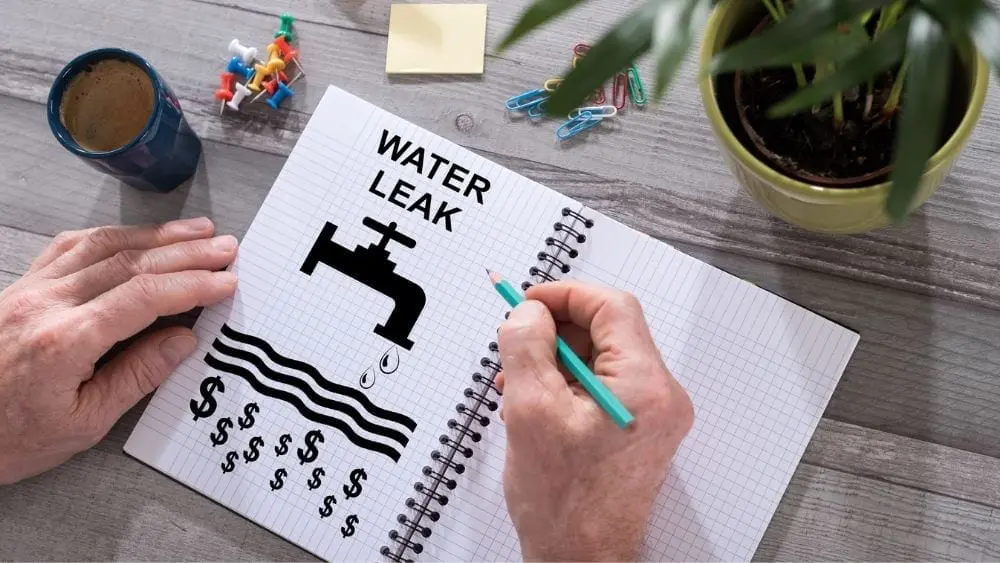
While most homeowners dread damage from a wild storm or a fire, some of the most expensive and frustrating problems can be caused by water. Minor drips and leaks can be annoying, but they can also waste water and increase your water bill. Worse, a major leak can harm your home and your bank account. Thanks to technology, some of the costliest impacts can be avoided with the help of a leak detector that alerts you to the problem and, in some cases, shuts off the water to limit the size of the loss.
“The Insurance Information Institute says that water damage is five times more likely than theft,” says Suzy Street, product manager, digital and IoT for Moen, a manufacturer of faucets and fixtures. “A small drip left undetected can cost thousands of dollars in damage.”
A report by Verisk Analytics found that one in 50 U.S. homeowners filed a water damage report every year between 2013 and 2017. The report also noted that the average insurance claim was about $10,000 in 2017.
While those big claims are dramatic, leak detectors can be valuable on a smaller scale. According to the EPA’s WaterSense project, leaks in the average household can account for nearly 10,000 gallons of water wasted every year. Ten percent of homes have leaks that waste 90 gallons or more per day. Finding and fixing common leaks can save homeowners approximately 10 percent on their annual water bills.
Newly built homes are less likely to have leaks due to worn toilet flappers, rusted pipes or faulty appliances since these items are new. But a loose connection behind a toilet or underneath an appliance or sink can cause a slow leak that could turn into a bigger problem. In addition, severe weather can cause pipes to freeze and crack, which could be a major mess if no one is at home to shut off the water supply.
Devices With Leak Detection
According to the EPA, minor water leaks account for one trillion gallons of wasted water every year in the U.S. Those one trillion gallons could supply all the water needed for one year to 11 million homes.
Leak detectors notify consumers after a serious leak when a moisture sensor has been triggered or a flow measurement shows that water has been wasted, says Street.
“The alternative is a preventative approach such as the Flo by Moen Smart Water Security System, which runs daily tests on the home’s water supply system to help identify vulnerabilities, including microleaks or increased water pressure, both of which are early indicators of a potential catastrophic pipe burst, mold behind walls and other types of water damage,” says Street. “This system helps stop leaks before they start.”
Some builders install water leak detectors in their homes as part of a smart home technology package. If your builder doesn’t offer this, you can buy simple leak detectors or have a plumber install a more elaborate system for you. Typically, leak detectors are installed in places where leaks are likely to happen, such as underneath sinks, behind toilets, in water heater closets (for tank-style water heaters), in the laundry room, in the basement and underneath a refrigerator, especially if it has an ice maker or water dispenser.
Individual leak detectors are generally priced between $50 to $100 and often come in packages of three or four sensors. For example, the Flo by Moen Smart Water Detectors cost $49.00 per sensor. Special leak detectors for drain lines from a toilet or a shower pan can cost $400, but sensors for a heating and air conditioning system can cost as little as $20 to $100.
A whole house sensor, such as Flo by Moen Smart Water Security System, starts at $499 and will require a plumber to install on the main water line going into the house, says Street.
“The system offers protection against leaks inside and outside the plumbing system,” says Street. “The water shutoff connects to the home’s main water line and calculates pressure, flow rate and area temperature within the home’s water supply system delivering data to the homeowner via a smartphone app. If an abnormality is detected, the device will notify the homeowner, who can turn off the water from the app or the system can be set to automatically shut off water to prevent catastrophic damage.”
The Flo by Moen system also has sensors that alert homeowners with a notification on the app if a sensor detects the presence of water, freezing temperatures or high humidity, says Street.
“Homeowners can use and connect multiple detectors within their home and, if they also have the Smart Water Shutoff, a leak that is sensed can automatically trigger the shut-off feature to protect the home from water damage,” says Street.
Some homeowner’s insurance companies will offer a discount on your premiums if you have a leak detector in place, particularly if the system includes an automatic water shutoff valve, says Street. Check with your insurance company before choosing a system to see if a discount is available.
Smart home leak detectors work in a variety of ways to find hidden leaks inside walls and underneath floors or to track the flow of water through the system that could indicated a potential leak. Some use metal sensors to pick up the presence of water.
Some systems use batteries and others plug into an outlet but preferably with a battery backup system. Typically, they use Wi-Fi to communicate but they may need to be integrated with a smart home hub. Depending on the system you choose, your leak detector will sound an alarm that you can hear when you’re home; it will also send an email or text, alerting you of a water problem. You may be able to use smart technology to shut off the water yourself through a smartphone app. Some systems automatically shut off the main water valve to your home if a major leak is detected. Another option when you’re out of town is to contact a neighbor or family member – who has a key to your home – so they can quickly shut off the water.
Costly Damage From Major Leaks
If a leak goes undetected for a long time or you have a sudden pipe break, the damage can be severe and expensive. Long slow leaks can cause hidden mold damage that require major repairs and mold remediation.
Large leaks can quickly damage everything from floors to walls to ceilings and all the materials and furnishings in between. Repairing the damage requires removal of damaged items, drying everything professionally to prevent mold and then replacing broken pipes and appliances, repairing walls and repainting.
Leak detection systems can be a valuable asset for homes that remain empty while owners are at work for long hours and even more important for second homes that go unused for weeks or months at a time. The faster you can shut off the water or repair a slow leak, the more you can minimize the damage.
DIY Leak Detection
While high tech leak detection can be helpful, the EPA also recommends steps you can take to monitor your water use on your own:
Pay Attention to Your Water Bill
Look for spikes in your bill that could indicate a leak. The EPA recommends checking your January or February bill to see how much water you use in winter. According to the EPA, a family of four that uses more than 12,000 gallons in a month during winter likely has a leak.
Check Your Water Meter
Typically, your water meter is near the curb in front of your home or inside your basement and will be marked “water.” Read the meter when no one is using water in your home, then check it after two hours. If the meter has changed while no water was used, you likely have a leak.
Test Your Toilet
Add a few drops of food coloring in your toilet tank and let it sit for 10 minutes. If you see color in the toilet bowl, you have a leak. Don’t forget to flush after 10 minutes to avoid staining the bowl.
Check Under Your Sinks
Look for water pooling under the pipes and for rust around the pipe joints.
Listen for Drips
You may be able to hear running water from a toilet and drips from a faucet or showerhead.
Check Your Appliances
Look for water underneath your water heater, washing machine, dishwasher, countertop dishwasher, and a refrigerator equipped with an ice maker.
Water may be wonderful for drinking and cleaning, but it can be a hazard to your home’s health and to your wallet if you don’t watch for leaks. Whether you have a leak detector or conduct a DIY test on your home, you may find ways to conserve water and reduce your water bill.

Michele Lerner is an award-winning freelance writer, editor and author who has been writing about real estate, personal finance and business topics for more than two decades.
 11 Smart Home Features for Senior Living
11 Smart Home Features for Senior Living